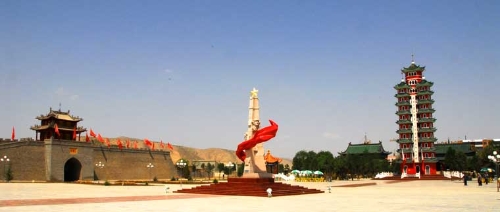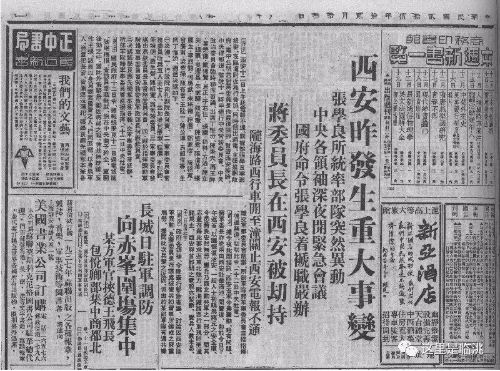1936
2021-04-26 07:08:53
October 22,1936
The three main forces of the Red Army joined forces. Since September 1935 when Zhang Guotao led the troops down south, the Fourth Front Army of the Red Army had wiped out large numbers of enemies, but it had also suffered heavy losses with its total number reduced by half. To avoid encirclement and attack by a strong enemy, it had to withdraw from the Tianquan, Lushan and Baoxing area in February 1936 and shift to the northeastern part of Xikang. In June, Zhang Guotao announced dissolution of the second “central committee.”In November 1935,the Second and Sixth Army Groups of the Red Army set off on the Long March from Sangzhi, Hunan. In June 1936,it reached the Ganzi area in Sichuan Province and joined forces with the Fourth Front Army that had arrived there earlier. In early July, they held a meeting to celebrate this event. On the 5th, the two army groups were reorganized, upon orders, as the Second Front Army of the Chinese Workers' and Peasants' Red Army, with He Long as its commander-in- chief and Ren Bishi political commissar. After the Second and Fourth Front Armies joined forces, thanks to the hard work done by the Central Committee to win him over, the struggle waged by Zhu De, Ren Bishi, He Long, Guan Xiangying and Liu Bocheng and the pressure exerted by the commanders and fighters of the Fourth Front Army in favour of a northward march to join the Central Committee, Zhang Guotao could not but agree to march northward along with the Second Front Army.
December 12,1936
The KMT's Northeast Army headed by Zhang Xueliang and its Seventeenth Route Army headed by Yang Hucheng, who had made many pleas to Chiang Kai-shek for stopping the civil war and uniting to fight Japan but were reprimanded instead, were compelled to stage the well-known Xi'an Incident by taking into custody Chiang Kai-shek who had come to Xi'an to make arrangements for “suppressing the Communists.” The CPC Central Committee correctly analysed the complicated situation and conducted repeated discussions before it worked out the principle for a peaceful settlement of the incident and sent Zhou Enlai, Qin Bangxian, Ye Jianying and others to Xi'an to take part in the negotiations. On the 24th, Chiang Kai-shek was forced to accept the terms of uniting with the CPC to resist Japan. Afterwards, Zhang Xueliang accompanied Chiang Kai-shek to Nanjing, where he was imprisoned by Chiang. The peaceful settlement of the Xi'an Incident served to promote another Kuomintang-Communist cooperation for united resistance to Japan and represented a turning point from civil war to national War of Resistance Against Japan.


